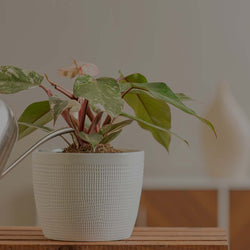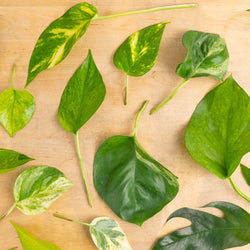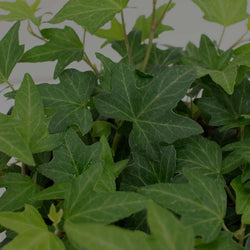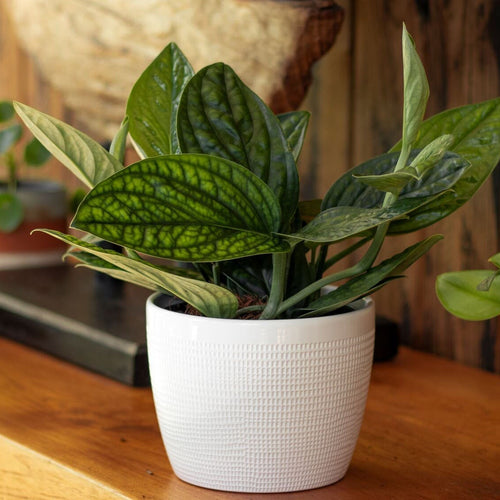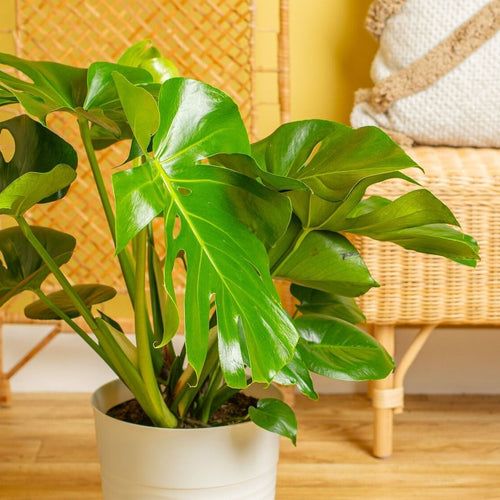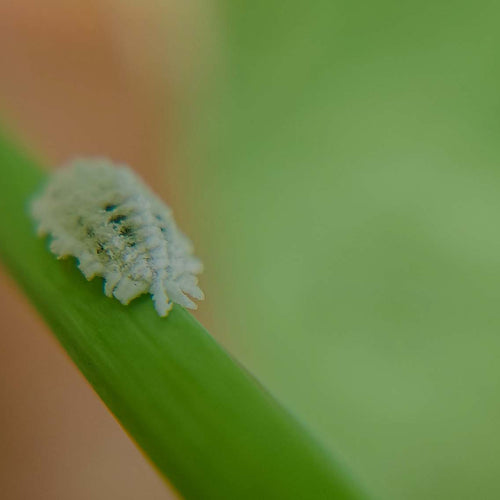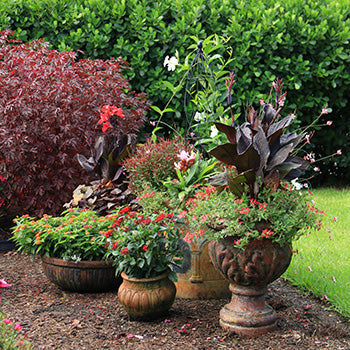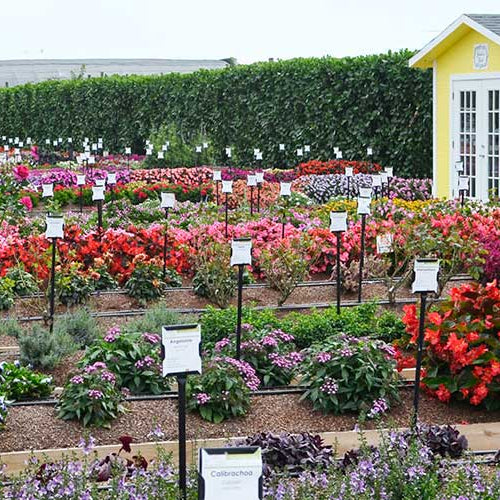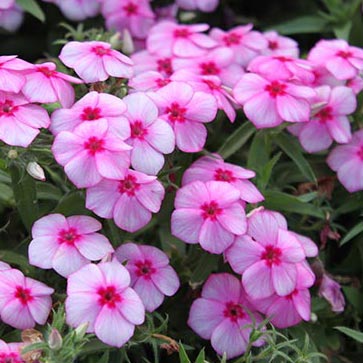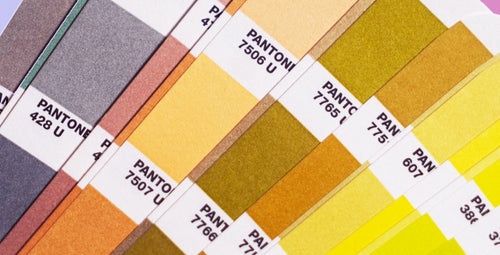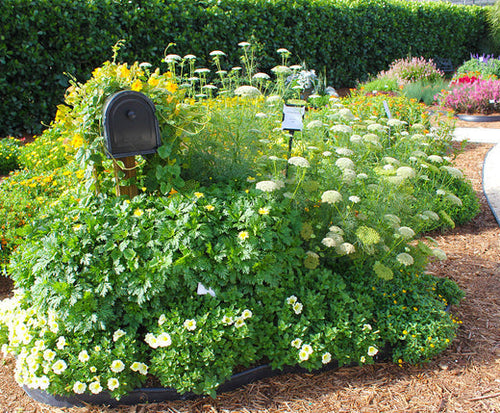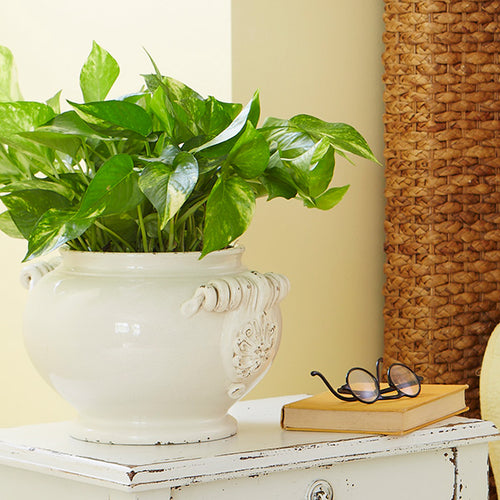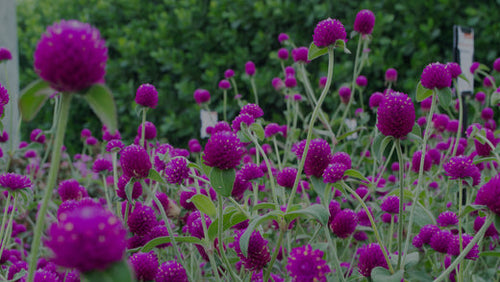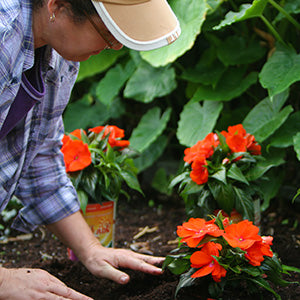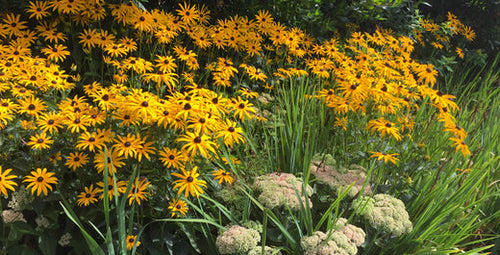By Doug Jimerson
Perennial flowers are a joy to grow. Like old friends, these reliable bloomers provide you with a yearly show of colorful foliage and flowers. Plus, there’s an almost unlimited selection of colors, heights, and shapes to choose from. Learn how to plant perennials: Here’s everything you need to know to create the perfect perennial garden.

Do Some Groundwork
Before planting perennials, do a little research. Evaluate your landscape to determine whether you have a shady or sunny location. Sun-loving perennials require at least 6 hours of direct sun a day; anything less and you should consider going with shade dwellers.
Check your soil, too: If you have heavy clay soil, add as much organic matter (compost, rotted manure, peat moss, etc.) as you can and mix it into the top 6 inches of soil. Sandy soil can also be improved with generous doses of organic matter and/or fresh topsoil. Rake the area smooth and remove all weeds, rocks, and debris before planting. And finally, find out what hardiness zone you live in. All perennials are listed by the zone or region of the country where they thrive. If you don’t know your zone, check out the USDA Plant Hardiness Zone Map.

Go Shopping
Make a shopping list before you head off to the garden center. Otherwise, it’s easy to get sidetracked by all the beautiful plants screaming for your attention. Perennials are generally sold in a variety of sizes. Smaller plants are the best value, but larger ones will bloom earlier and provide instant impact. The size of plants you choose depends entirely on your budget and the amount of plants you need to fill your planting area. Look for stocky plants with healthy foliage. Don’t worry if the plants are not blooming. Perennials have their own season of bloom, so just because they aren’t showing color at the garden center doesn’t mean they won’t provide color in your garden. In fact, if you want perennials for spring, summer, and fall, you won’t be able to find all in bloom at once with just one visit to the garden center.
Get Planting Perennials
Not sure how to plant perennials? It's easy. Simply slip plants out of their pots and set them in a hole in the ground. They should sit in the ground at the same depth they were in the pot. If the root ball is in a solid mass, tease the ball apart before planting. It’s important when planting perennials that all the roots are under soil. Follow the spacing recommendations on the plant tag. When all your plants are in place, water thoroughly and add several inches of mulch on top of the soil around the plants to minimize weeds and stabilize soil moisture.
Get more tips for the planting process.
Stagger Heights
Perennials come in a wide range of heights. Some low-growing varieties, such as creeping phlox, barely reach 6 inches in height, while others, such as hardy hibiscus, can grow more than 6 feet tall. For the best effect, stage your border by including short, medium, and tall varieties in the same bed. Just be sure to read the plant tag before you plant because some perennial families, such as phlox and lily, include varieties of dramatically different heights.

Coordinate Colors
Create a stunning flower show by planting perennials together that bloom in complementary colors. Blue, pink, and white flowers, for example, work well together if you prefer a soft pastel look. For big, bold borders select red, yellow, and purple perennials. Include foliage, too. Hosta and coral bells, for example, are great examples of perennials that are more prized for their pretty leaves than they are for their more modest flowers. Planting perennials like these ensures your garden looks good all season, and keeps the color show going while other perennials come in and out of bloom. For an eye-pleasing effect, plant perennials in large drifts or clumps and repeat the pattern throughout the border. Don’t be tempted to plant one of everything. You’ll end up with a jumbled mix of competing colors.

Plan for Continuous Bloom
Unlike annuals that flower all summer long, perennials have their own season of bloom that can last from a few days to several weeks. That’s why, if you want nonstop color, you need to plant a mix of spring-, summer- and fall-blooming perennials in your garden. Here’s a list of top perennials to plant for each season. Keep in mind that weather conditions ultimately decide when a plant flowers. For example, a cold, wet spring can delay the bloom time of spring perennials and a hot, dry summer can cause some fall bloomers to flower early.
Spring Perennials
- Peony
- Bearded and Siberian iris
- Baptisia
- Catmint
- Veronica
- Creeping phlox
- Clematis
- Hellebore
- Viola
- Bleeding heart
- Dianthus
- Salvia
- Columbine
- Oriental poppy
Perennial Summer Sensations
- Black-eyed Susan
- Coneflower
- Liatris
- Shasta daisy
- Hosta
- Asiatic and Oriental lily
- Agapanthus
- Achillea
- Astilbe
- Coreopsis
- Delphinium
- Gaillardia
- Heliopsis
- Daylily
- Hibiscus
- Penstemon
- Phlox
- Heuchera
Perennial Fall Favorites
- Chrysanthemum
- Aster
- Sedum
- Goldenrod
- Joe-Pye Weed
- Helenium
- Heliopsis
- Helianthus
Perennial Planting Questions?
We love to talk to other gardeners. Email us your questions about how to plant perennials and we'll have one of our experts get back to you!
